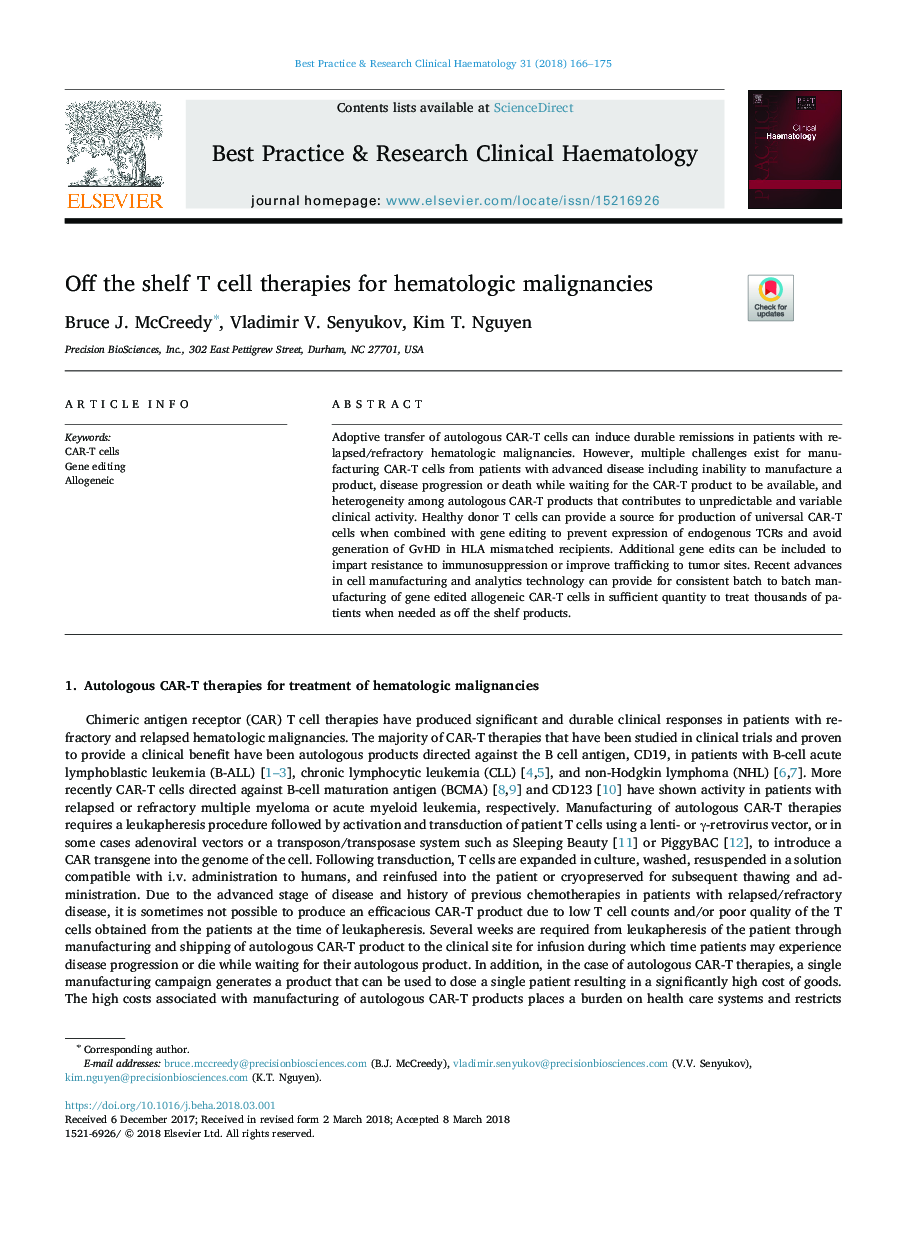| Article ID | Journal | Published Year | Pages | File Type |
|---|---|---|---|---|
| 8428958 | Best Practice & Research Clinical Haematology | 2018 | 10 Pages |
Abstract
Adoptive transfer of autologous CAR-T cells can induce durable remissions in patients with relapsed/refractory hematologic malignancies. However, multiple challenges exist for manufacturing CAR-T cells from patients with advanced disease including inability to manufacture a product, disease progression or death while waiting for the CAR-T product to be available, and heterogeneity among autologous CAR-T products that contributes to unpredictable and variable clinical activity. Healthy donor T cells can provide a source for production of universal CAR-T cells when combined with gene editing to prevent expression of endogenous TCRs and avoid generation of GvHD in HLA mismatched recipients. Additional gene edits can be included to impart resistance to immunosuppression or improve trafficking to tumor sites. Recent advances in cell manufacturing and analytics technology can provide for consistent batch to batch manufacturing of gene edited allogeneic CAR-T cells in sufficient quantity to treat thousands of patients when needed as off the shelf products.
Keywords
Related Topics
Life Sciences
Biochemistry, Genetics and Molecular Biology
Cancer Research
Authors
Bruce J. McCreedy, Vladimir V. Senyukov, Kim T. Nguyen,
